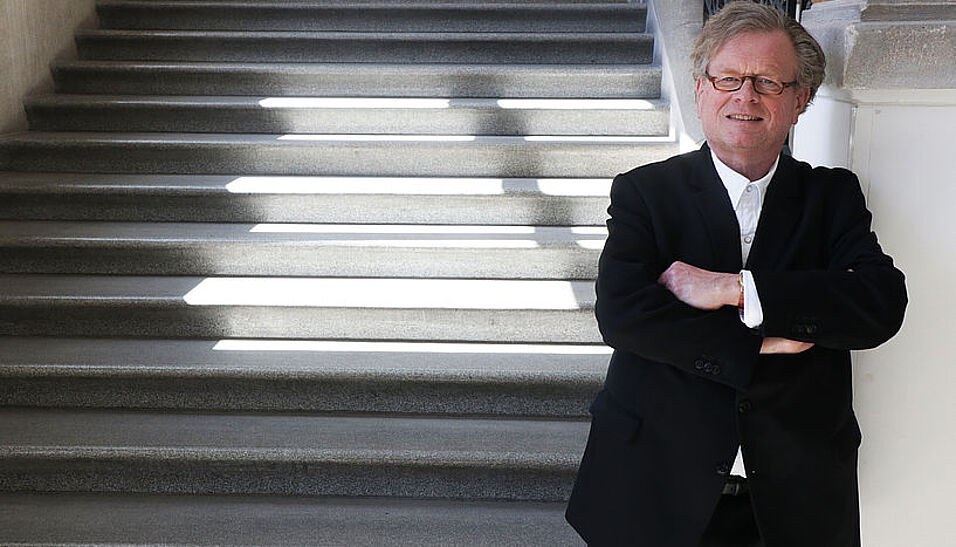In its review, the interuniversity "Translational Cancer Therapy Research" cluster examined all the papers (more than 1,300 scientific articles in total) relating to the interaction between the immune system and metal chemotherapy drugs. As well as looking at publications from the last 30 years or so, lead author Walter Berger from MedUni Vienna and his colleagues also discuss new aspects and provide a comprehensive overview.
Combination therapies are the future
Walter Berger, Deputy Head of MedUni Vienna's Institute of Cancer Research, member of the Comprehensive Cancer Center (CCC) of MedUni Vienna/Vienna General Hospital and one of the two directors of the interuniversity research cluster explains: "Even viewed from a global perspective, we are one of the few translational research clusters where experts in synthesis chemistry, basic researchers in cell and molecular biology and clinical oncologists work directly together to develop new cancer treatments. And that is why we were invited to produce this review. The results clearly show that the combination of metal chemotherapy drugs and immunotherapies are among the most promising current and future treatment concepts."
Synergistic effects
The explanation behind this finding is this. Every cancer follows a long fight by the immune system against the potential cancer cells, which the immune system eventually loses. This happens because the tumour either manages to go undetected as something foreign or manages to control the immune cells and immobilise them. Metal chemotherapy drugs not only destroy tumour cells but preferentially also the "burnt out" or inhibitory components of the immune system. In response to this, the immune system renews itself from stem cells so that it is rejuvenated, as it were, and fully functional to resume the fight against cancer.
Metal-based chemotherapy therefore enhances the effect of immune checkpoint inhibitors. The reason for this is that cancer cells develop from the body’s own cells. The immune system is trained to protect endogenous cells and therefore finds it difficult to detect tumour cells.
Metal-based chemotherapies can now kill the tumour cells as they mutate during the process of disintegration. This "otherness" renders them once again visible to the immune system and therefore open to attack, a mechanism known as "immunogenic cell death". In parallel, the tumour cells "strive" to combat the effect of the chemotherapy drug by increasing their mutation rate. However, each new mutation that is produced in this way can potentially be more easily recognised by the rejuvenated immune system. Hence the immune system seems to preferentially attack chemo-resistant tumour cell clones.
Internationally recognised
The interuniversity Translational Cancer Therapy Research cluster is now internationally regarded as an exemplary model of translational collaboration between chemistry, cancer research and oncology.
Says Bernhard Keppler, Chairman of the Institute of Inorganic Chemistry, Deacon of the Chemistry Faculty at the University of Vienna and one of the two Cluster directors: "The Chemistry Faculty of the University of Vienna has a strong interest in biological chemistry, which includes the development of new strategies for targeted anticancer drugs – from their clinical synthesis and molecular biological characterisation right through to their clinical application. In this context, the collaborative arrangement with the Medical University of Vienna plays an outstanding role. It enables us to expand our studies of cell cultures and spheroids (spherical cancer cell aggregates) and to predict the development of resistance and side-effects, which are very important for subsequent clinical development. In future, we want to work with the clinical oncologists at the Medical University of Vienna to conduct more preliminary trials on patients, which have so far been largely conducted in the USA."
The research cluster reported on its work last year, for example in an entire lecture series at the prestigious Gordon Conference in Boston, USA, where it was recognised as an exemplary model of translational, multi-disciplinary cancer treatment research.
Service: Chemical Reviews "Metal Drugs and the Anticancer Immune Response”
Bernhard Englinger, Christine Pirker, Petra Heffeter, Alessio Terenzi, Christian R. Kowol, Bernhard K. Keppler, Walter Berger. DOI: 10.1021/acs.chemrev.8b00396


